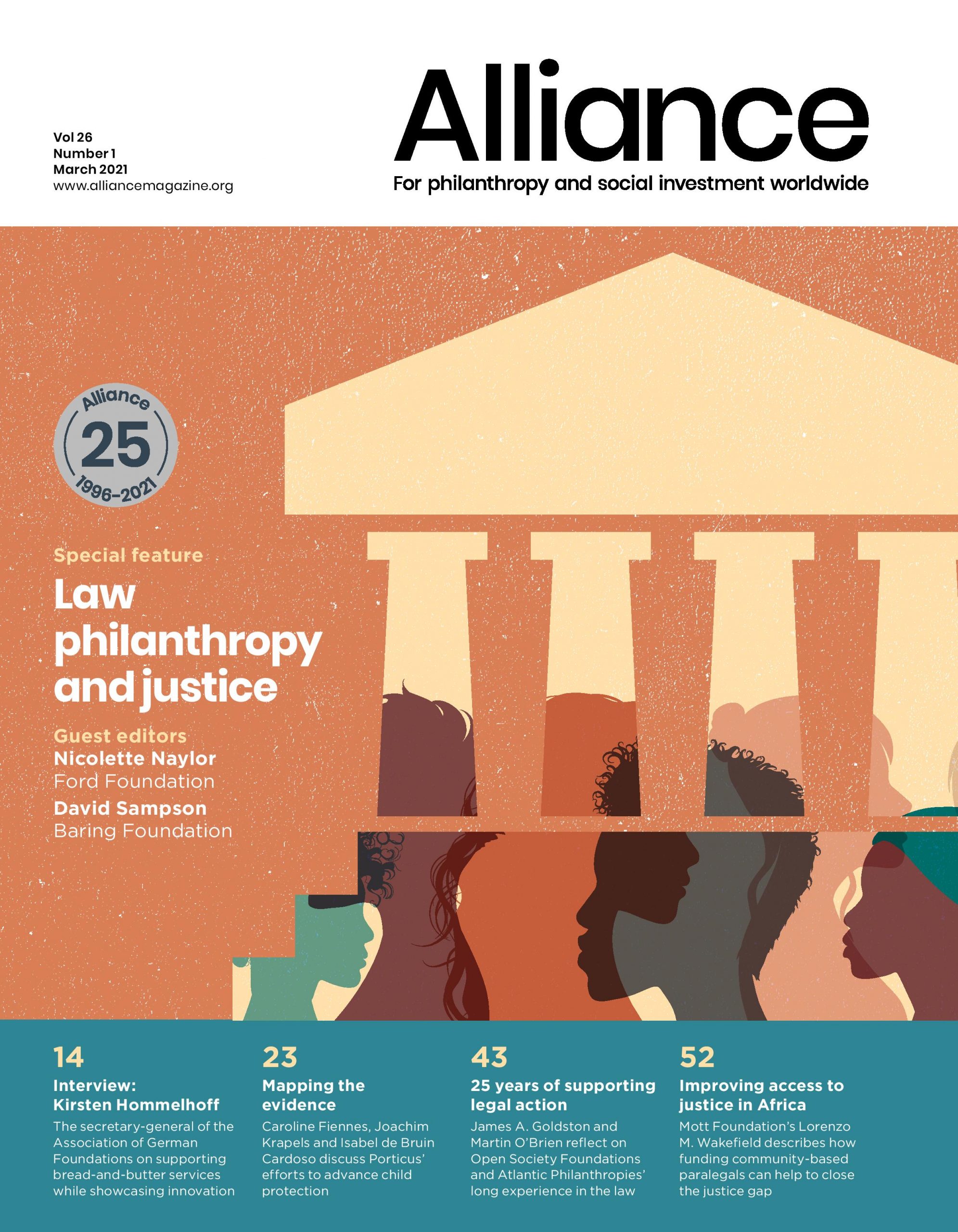In the many places where access to justice is limited, funders should put money into supporting community-based paralegals
The 2019 ‘Justice for All’ report found that 5.1 billion people – a staggering two-thirds of the world’s population – lack access to meaningful justice solutions. This figure represents more than a 20 per cent increase over a decade in the number of people worldwide who are trapped in the justice gap. But what does this statistic really mean?
In places like Malawi and Sierra Leone, it means prisons are overcrowded with people who have been detained for petty offences such as loitering or small debt charges, often for months in poor conditions, as legal aid lawyers are overwhelmed and courts are inundated with burgeoning caseloads. In South Africa, social grant recipients have been targeted by micro-lenders who provide loans at exorbitant interest against the grants that people depend on to keep their families afloat.
Governments in Malawi, Kenya, Zambia, Tanzania and Sierra Leone have acknowledged the role that paralegals play in their legal aid laws, but have yet to provide adequate and sustainable financing for their work.
Subscribe now from only £45 a year!
This article is only available for our subscribers
Existing users can login here



